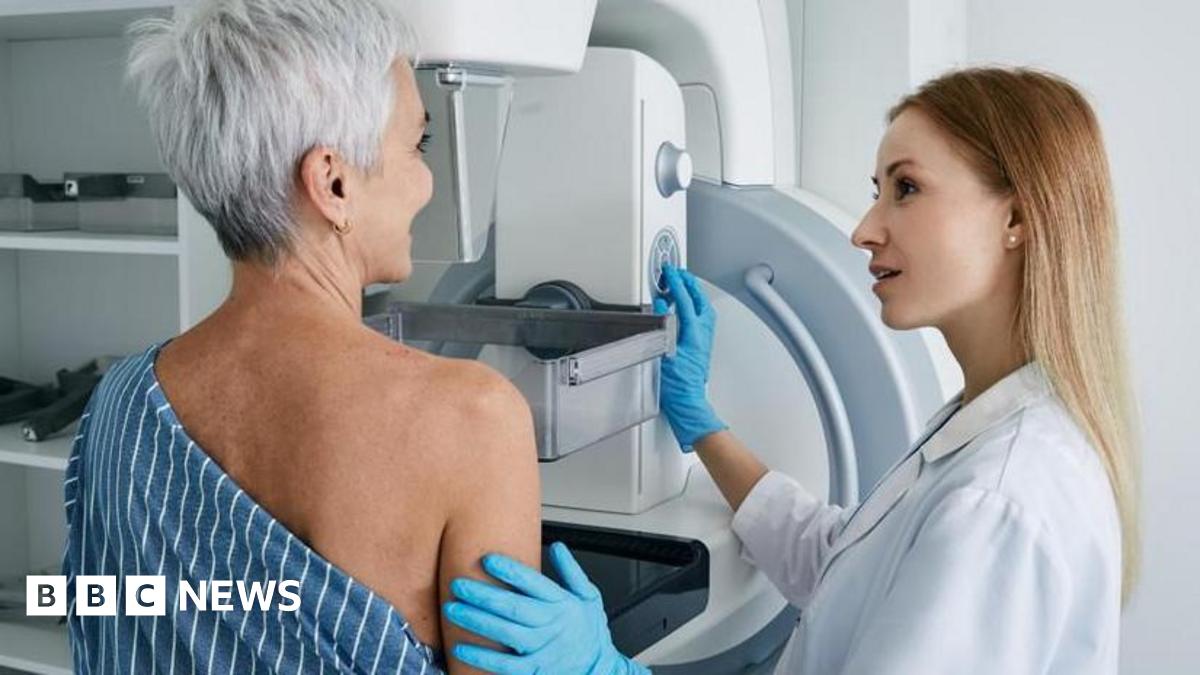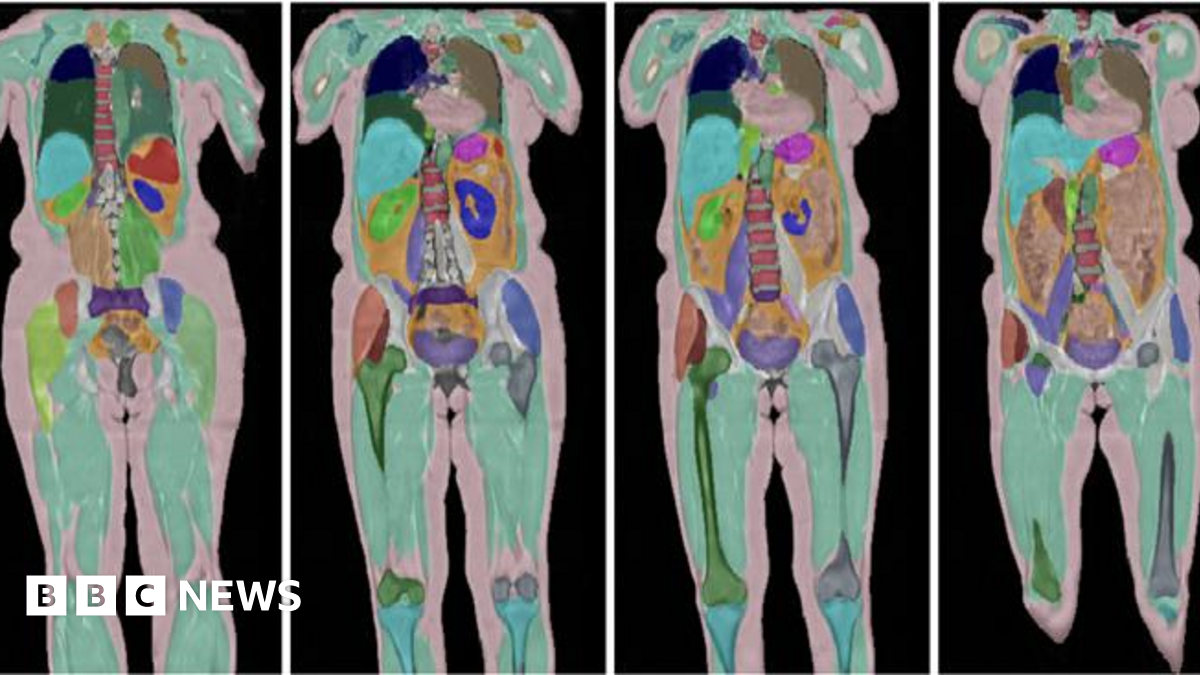Dense Breast Tissue And Cancer Risk: The Case For Expanded NHS Screening Programs

Welcome to your ultimate source for breaking news, trending updates, and in-depth stories from around the world. Whether it's politics, technology, entertainment, sports, or lifestyle, we bring you real-time updates that keep you informed and ahead of the curve.
Our team works tirelessly to ensure you never miss a moment. From the latest developments in global events to the most talked-about topics on social media, our news platform is designed to deliver accurate and timely information, all in one place.
Stay in the know and join thousands of readers who trust us for reliable, up-to-date content. Explore our expertly curated articles and dive deeper into the stories that matter to you. Visit Best Website now and be part of the conversation. Don't miss out on the headlines that shape our world!
Table of Contents
Dense Breast Tissue and Cancer Risk: The Case for Expanded NHS Screening Programs
Introduction: For women in the UK, the annual breast screening program offered by the NHS is a vital tool in early cancer detection. However, a significant challenge remains: dense breast tissue. This common condition, affecting roughly 40% of women, makes detecting cancer through mammograms significantly more difficult, potentially leading to delayed diagnoses and poorer outcomes. This article explores the link between dense breast tissue and cancer risk, and argues for the expansion of NHS screening programs to address this critical issue.
Understanding Dense Breast Tissue:
Dense breast tissue is characterized by a higher proportion of glandular and fibrous tissue compared to fatty tissue. On a mammogram, dense breast tissue appears white, much like the appearance of a tumor, making it challenging for radiologists to distinguish between benign dense tissue and cancerous growths. This "masking effect" can lead to false negatives, meaning cancer may be missed. The density of breast tissue naturally decreases with age, but many women maintain high density throughout their lives.
The Link Between Density and Cancer Risk:
Numerous studies have established a strong correlation between dense breast tissue and an increased risk of breast cancer. Women with extremely dense breasts have a significantly higher chance of developing breast cancer compared to those with fatty breasts. While dense breast tissue itself isn't cancerous, it creates a radiological challenge that hinders early detection. This increased risk necessitates a more proactive approach to screening.
The Limitations of Current NHS Screening:
The current NHS breast screening program, while effective, doesn't explicitly address the challenges posed by dense breast tissue. While radiologists are trained to interpret mammograms carefully, the limitations remain. Many women with dense breasts receive reassuring results, only to be diagnosed with cancer at a later stage through alternative methods.
The Call for Expanded Screening:
Several solutions are being advocated for to address this issue:
- Improved Mammography Technology: Advancements in digital mammography and tomosynthesis (3D mammography) offer better image clarity and can improve the detection rate in dense breasts. Wider adoption of these technologies within the NHS is crucial.
- Supplementary Screening: For women with extremely dense breasts, supplementary screening methods such as ultrasound or MRI scans could be considered. These techniques can better penetrate dense tissue, potentially identifying cancers missed by mammography alone.
- Patient Notification: All women should be informed about their breast density following a mammogram. Knowing their density allows women to make informed decisions about their health and discuss supplementary screening options with their healthcare provider.
- Increased Funding: Expanding access to advanced technologies and supplementary screening methods requires significant investment from the NHS. Advocating for increased funding to support these initiatives is vital.
Conclusion:
The link between dense breast tissue and increased breast cancer risk is undeniable. The current NHS breast screening program, while valuable, needs enhancement to adequately address this challenge. By investing in better technology, offering supplementary screening where necessary, and providing transparent information to women, the NHS can significantly improve early detection rates and save lives. This is not just a matter of improved technology; it's a matter of ensuring equitable access to life-saving healthcare for all women in the UK. We urge readers to contact their MPs and advocate for changes to the NHS breast screening program to incorporate these vital improvements. Early detection is key, and ensuring that women with dense breasts receive the appropriate screening is paramount to improving outcomes.
(Note: This article is for informational purposes only and does not constitute medical advice. Consult with your healthcare provider for any concerns regarding your breast health.)

Thank you for visiting our website, your trusted source for the latest updates and in-depth coverage on Dense Breast Tissue And Cancer Risk: The Case For Expanded NHS Screening Programs. We're committed to keeping you informed with timely and accurate information to meet your curiosity and needs.
If you have any questions, suggestions, or feedback, we'd love to hear from you. Your insights are valuable to us and help us improve to serve you better. Feel free to reach out through our contact page.
Don't forget to bookmark our website and check back regularly for the latest headlines and trending topics. See you next time, and thank you for being part of our growing community!
Featured Posts
-
 I Phone 13 Users Get A Free Apple Bonus Details Inside
May 24, 2025
I Phone 13 Users Get A Free Apple Bonus Details Inside
May 24, 2025 -
 L Elimination D Adrian Mannarino Bilan De Son Grand Chelem
May 24, 2025
L Elimination D Adrian Mannarino Bilan De Son Grand Chelem
May 24, 2025 -
 Critics Choice Sci Fi Film Streaming Now A Hidden Gem
May 24, 2025
Critics Choice Sci Fi Film Streaming Now A Hidden Gem
May 24, 2025 -
 Harvard And Barron Examining The Controversy Behind The Rejection
May 24, 2025
Harvard And Barron Examining The Controversy Behind The Rejection
May 24, 2025 -
 Where Did Barron Trump Go To College Exploring The Educational Background Of The Trump Children
May 24, 2025
Where Did Barron Trump Go To College Exploring The Educational Background Of The Trump Children
May 24, 2025
Latest Posts
-
 A Students Guide To Personal Injury Law Challenges And Rewards Of The Legal Profession
Jul 16, 2025
A Students Guide To Personal Injury Law Challenges And Rewards Of The Legal Profession
Jul 16, 2025 -
 Putin And Trump A Continuing Conflict Despite Trumps Disappointment
Jul 16, 2025
Putin And Trump A Continuing Conflict Despite Trumps Disappointment
Jul 16, 2025 -
 The Shocking Details Of The Marten And Gordon Case A Nations Disbelief
Jul 16, 2025
The Shocking Details Of The Marten And Gordon Case A Nations Disbelief
Jul 16, 2025 -
 100 000 Uk Volunteers Contribute To Massive Human Imaging Study
Jul 16, 2025
100 000 Uk Volunteers Contribute To Massive Human Imaging Study
Jul 16, 2025 -
 Laid Off King Employees Replaced By Ai They Helped Create
Jul 16, 2025
Laid Off King Employees Replaced By Ai They Helped Create
Jul 16, 2025
